It seems there is some confusion in affiliate marketing circles on whether or not you can (or should) use the rel=”sponsored” link attribute for Amazon affiliate links. In fact, we’ve had several AmaLinks Pro® users write in and ask us if we will be adding this as an option within AmaLinks Pro®.
Here is the short answer. No. We will not be adding rel=”sponsored” as an option within AmaLinks Pro® anytime soon. The reason is simple – we believe that adding rel=”sponsored” to Amazon affiliate links would NOT be compliant with Amazon’s policies. We determined this based on everything we’ve learned about the rel=”sponsored” attribute from many different sources and based on actual text within Amazon’s current policies.
Here is the actual text, straight from the Amazon Associates Operating Agreement, that leads us to believe that using the rel=”sponsored” attribute would be a violation of terms…
You will not misrepresent or embellish our relationship with you (including by expressing or implying that we support, sponsor, or endorse you), or express or imply any affiliation between us and you or any other person or entity except as expressly permitted by this Agreement.
So, What Exactly is the rel=”sponsored” Link Attribute?
I’m not going to pretend to be the expert on this topic. I’m simply going to regurgitate information that I found from other sources. Basically, Google has added a couple of new link attributes that publishers ‘can’ use as an alternative to (or in conjunction with) the “nofollow” attribute – which has been commonplace for about the last 14 years.
As of March 1st, 2020 (the exact day that I am writing this post) – Google will start using these new attributes as “hints” when it comes to crawling, indexing and ranking websites. Here is a really good graphic, from the folks over at Moz, that explains it all really well…
The article on Moz goes into great detail on the affects of these link attributes on SEO. Definitely go read this article on Moz if you care about this stuff. Here is the one quote from that article that I am including here, because I think this really says it all…
To be clear, if a site is properly using nofollow today, SEOs do not need to recommend any changes be made. Though sites are free to do so, they should not expect any rankings boost for doing so, or new penalties for not changing.
They Say I Should Use rel=”sponsored” for All Affiliate Links
To add to the confusion – this article on SERoundTable.com published this quote from somebody at Google…
Google’s John Mueller said that if you can, it is best to use the rel=sponsored link attribute on your affiliate links. You can still use nofollow or combine them if you want, but it would make things clearer for Google if you use rel=sponsored.
And to really add a cherry to the top of the confusion Sundae – this article on the Ezoic blog shows you (step-by-step), exactly how to add the rel=”sponsored” attribute to your existing Amazon affiliate links!
Update: July 28, 2021
This article was originally written and published on March 1, 2020. Here we are, nearly a year and a half later, and Google is at it again. On July 26, 2021 – Google published this article, titled: A reminder on qualifying links and our link spam update. Under the Affiliate links subheading, they included the following line…
We ask sites participating in affiliate programs to qualify these links with rel=”sponsored”, regardless of whether these links were created manually or dynamically.
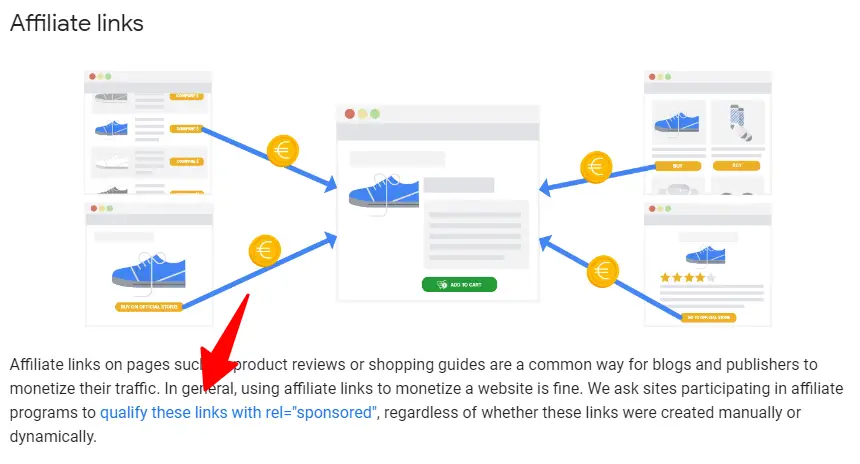
You’ll notice that they hyperlinked the line that says to qualify these links with rel=”sponsored” – very interesting. Let’s see what that hyperlink leads to. Aha! It’s a Google documentation page about how to qualify your outbound links for SEO!
And what do you suppose that page says about using rel=”sponsored”…? I’ll show you. This is exactly what it says…
Mark links that are advertisements or paid placements (commonly called paid links) with the sponsored value. More information on Google’s stance on paid links.
Note: The nofollow attribute was previously recommended for these types of links and is still an acceptable way to flag them, though sponsored is preferred.
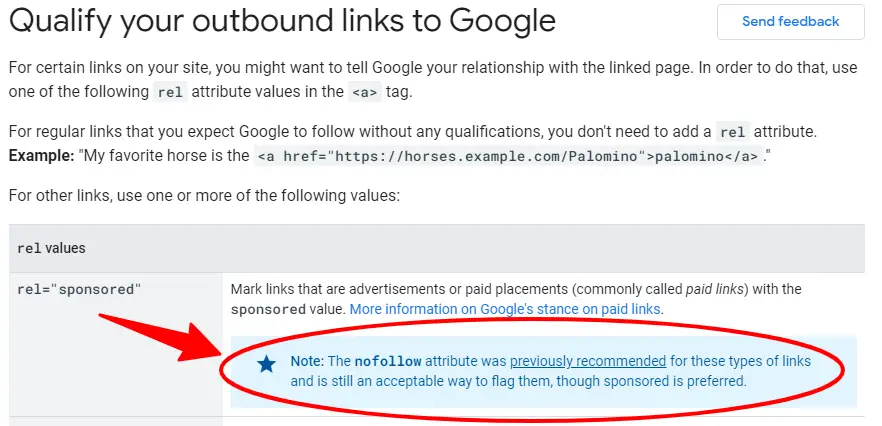
Two MAJOR things to note here…
- Amazon affiliate links are NOT paid links – Amazon does not pay you to simply place the links. You get paid only after an affiliate conversion takes place.
- The nofollow attribute is still an acceptable way to flag them
Last, but not least – let’s see what an actual Google representative had to say about this topic recently when asked on Twitter. In response to questions from his followers, John Mueller wrote this…
I can’t speak for all possible futures, but I don’t see that happening. There’s no need to rebuild your sites to shift from nofollow to sponsored, but using the better fitting variant on new sites would be nice.
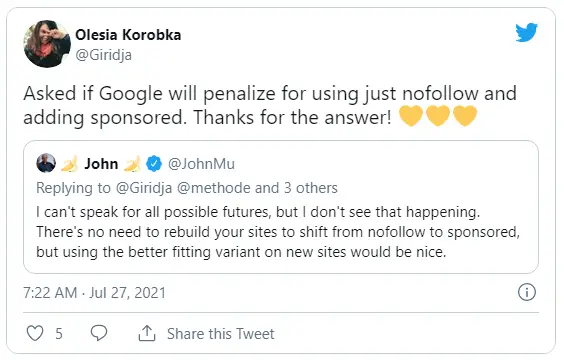
Bottom line: using rel=”nofollow” is still perfectly fine and acceptable. Using rel=”sponsored” seems to be a suggestion from Google to use with affiliate links – but given the fact that this conflicts with Amazon’s policies – we here at AmaLinks Pro® strongly suggest that you DO NOT use rel=”sponsored” for Amazon affiliate links.
Will Google penalize sites that use affiliate links without markup?
This is another update to this post (as of December, 13, 2021)…
In another post on this topic on the Search Engine Journal blog, this is written…
Google’s Search Advocate John Mueller says websites will not receive a manual penalty for using affiliate links without the recommended markup.
Credit: Search Engine Journal blog
The post goes on to say…
To be sure, it’s a strongly recommended best practice to use either the rel=”sponsored” or rel=”nofollow” attributes on affiliate links.
However,there’s no reason to lose sleep if there are affiliate links on your site without the recommended markup.
Defining the rel=”sponsored” Link Attribute
Each of the articles mentioned and linked to above (and many others) have varying, yet similar, definitions for what they perceive Google wants us to use rel=”sponsored” for. Here’s what they say…
- Moz – rel=”sponsored” – For paid or sponsored links. This would assumingly include affiliate links, although Google hasn’t explicitly said.
- Search Engine Journal – rel=“sponsored”: Identifies links on a site that were created as part of advertising, sponsorships or similar agreements.
- Ezoic – rel=”sponsored”: Use the sponsored attribute to identify links on your site that were created as part of advertisements, sponsorships or other compensation agreements.
Moz ‘assumes’ it should include affiliate links. Search Engine Journal says it’s for advertising, sponsorships or similar agreements. Ezoic says advertisements, sponsorships or other compensation agreements.
So what are we supposed to believe? Do we add rel=”sponsored” to affiliate links or not? And if we do – should we add it to Amazon affiliate links?
We Say NO – Do Not Use for Amazon Affiliate Links
After regurgitating all of this nonsense – our reasoning boils down to one simple statement in the Amazon Operating Agreement…
You will not misrepresent or embellish our relationship with you (including by expressing or implying that we support, sponsor, or endorse you), or express or imply any affiliation between us and you or any other person or entity except as expressly permitted by this Agreement.
Simply stated – Amazon does not want your audience to presume – in any way, shape or form – that they are somehow endorsing or sponsoring you. An affiliate link is NOT an endorsement or a sponsorship.
Furtheremore – Amazon affiliate links are NOT paid link placements. Even though you could get paid a commission after somebody clicks on one of them – Amazon is not paying you TO place the affiliate links.
By using the rel=”sponsored” link attribute on Amazon affiliate links – we believe that this could be seen by Amazon as a misrepresentation or embellishment of their relationship with you. Even though readers can’t see them – Amazon officials certainly can look at the link attributes if they do a manual review of your site.
In one of the quotes above, John Mueller (from Google) says that rel=”sponsored” should be used for affiliate links if you can. We believe that in the case of Amazon affiliate links, you cannot!
Better To Be Safe, Rather than Sorry
It’s kind of funny (actually, I find it rather annoying) that SO many people think that Google sets the rules for stuff like this regarding content. People think that the Google police are going to come after them if they ‘break the rules’. Do you have any idea what it’s like to spend a night in Google jail? It’s not fun!
True – you do have to play by their so-called ‘rules’ if you want favor with the almighty algorithm and you think your content is good enough to rank at the top of their search results. But in the case of this rel=”sponsored” vs rel=”nofollow” – everything I’ve read says that you will gain no advantage by switching to rel=”sponsored” and no penalty will be incurred if you do not.
Combine that fact with the risk that Amazon could flag you as embellishing or misrepresenting their relationship with you… I just don’t think it’s worth the risk.
You gain nothing and it adds risk. Furthermore – it adds complication. At the time I am writing this article – I DO NOT recommend that you use rel=”sponsored” for Amazon affiliate links. For this reason – we WILL NOT be adding this option to AmaLinks Pro® anytime soon. At this time, AmaLinks Pro® gives you the option to easily add rel=”nofollow” to your Amazon affiliate links – which is still acceptable and has been commonplace for many years.
If something changes in the future – we’re always ready to roll with the punches. For now – just stay safe and avoid the hassle. Just use rel=”nofollow” for your Amazon affiliate links.
Want to learn more about staying compliant with Amazon?
Sign up for our Level Up Series below. We have all kinds of great information to help you stay compliant – as well as strategies to help you earn more!

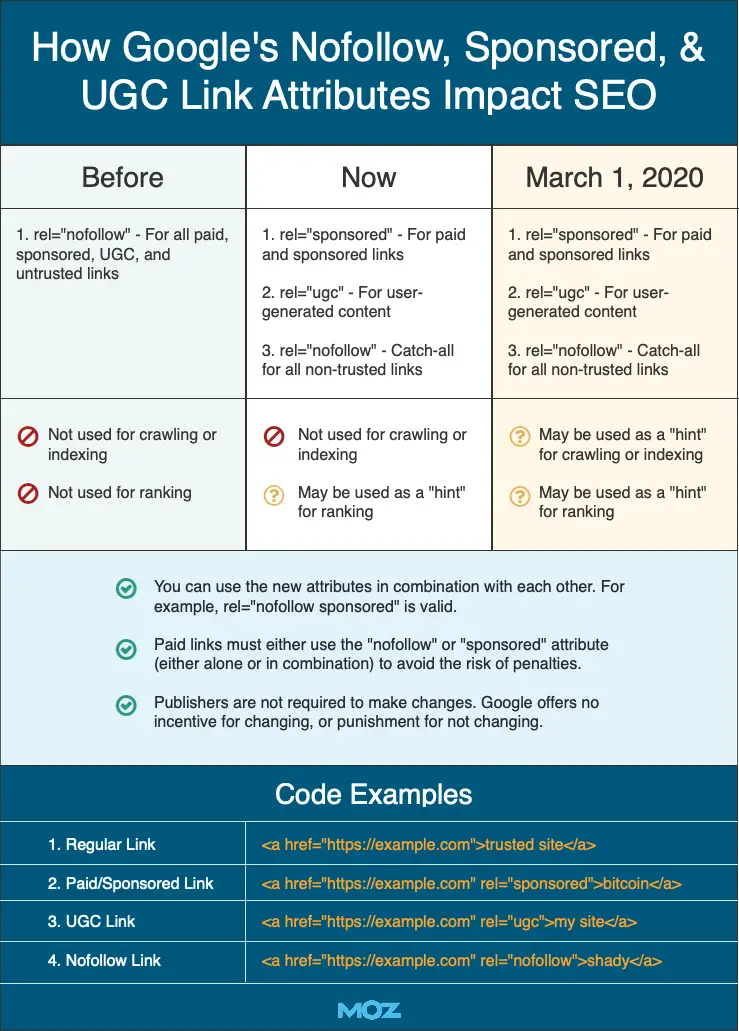

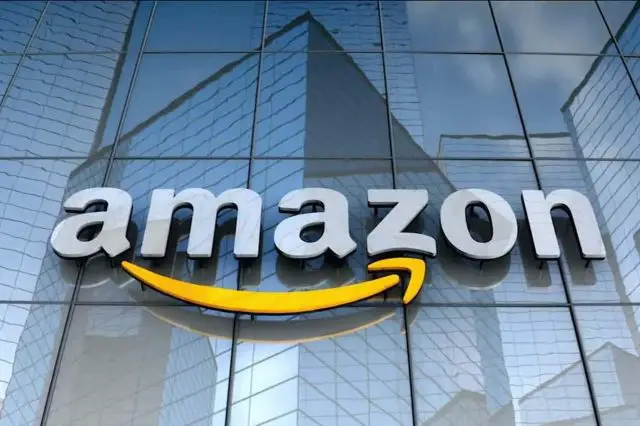
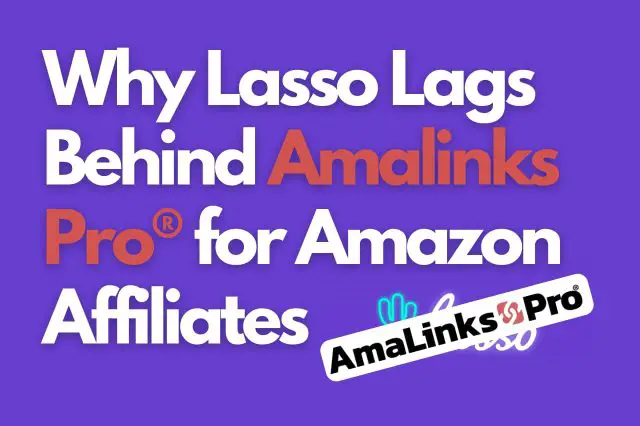

Thanks for this post! It really makes a lot of sense when you read Amazon’s statement. I wish I’d seen this article before I’d read the others you mentioned and changed all my Amazon links to “sponsored”. I’ll be changing them back to “nofollow” now. Thanks again!
No problem Marty! It’s amazing… the misinformation that can be found out there on the interwebs. We do our best to research topics and find the truth before publishing articles. Especially for instances like these… where it could affect Amazon compliance.
Hi there, this the latest update, they are saying to use rel sponsored
https://www.searchenginejournal.com/google-link-spam-update/414623/
Affiliate links: Google asks sites participating in affiliate programs to qualify these links with rel=“sponsored”, regardless of whether these links were created manually or dynamically.
Thank you for pointing this out. I’ve researched as much as I’ve needed to in order to get clarification on this topic and I’ve updated this post to reflect my findings. Please see the new subheading in the post titled – Update: July 28, 2021.
Thanks for the post! Matthew. I was really afraid of the judgment of google police. Now after reading this post I am assured I won’t be put behind bars for not placing sponsored tags on my affiliate links. Set me free!
Thanks for this post I was very confused whether or not to include sponsored tag in my Amazon affiliate links.
Hi Matthew Allen,
You strongly recommend to do not use the rel=”sponsored” attribute for amazon affiliates. But tech giants like: https://www.techradar.com/ and https://www.laptopmag.com/ are using sponsored attributes for their amazon affiliate link. So what do you think about this?
I think that tech giants are allowed to play by a different set of rules than the rest of us. I highlighted this very topic in this post on the AmaLinks Pro® blog – https://amalinkspro.com/7-successful-amazon-affiliate-websites/ – where I prove that several highly successful (and popular) sites are totally violating Amazon’s policies – but nobody seems to care and they get away with it.
You can use rel=”sponsored” if you want to – I’m just saying that it’s totally not necessary and that rel=”nofollow” is still acceptable. I don’t see any reason to take even the slightest risk with your Amazon Associates account by marking links as “sponsored” when Amazon’s policies clearly state that you cannot infer that your affiliate links are sponsored.
Ok, I completely agree with you but I have one more article (https://macandegg.com/2020/07/relsponsored-link-attribute-for-amazon-affiliate-links/) which makes me confused. Because they claimed amazon allows to add “sponsored” attribute.
That article you referenced is terrible. On one hand, they prove my point by displaying the definition of the word sponsored. On the other hand – they claim they contacted an Amazon Associates rep – but they offer no proof whatsoever. Furthermore – the biggest takeaway from their article is this…
“Does this have advantages for your SEO? According to Google: no. Also, you will not be punished if you do not change old “nofollow” affiliate links to the new “sponsored”.”
I stand by what I’ve said from the very beginning. Using rel=”sponsored” is useless and offers no advantage or disadvantage. Don’t take the risk and just stick to using rel=”nofollow”.
Ok thanks, Matthew I’m really glad you helped me a lot in making this decision.
Thanks for the article Matthew.Their policy say “You will not misrepresent or embellish our relationship with you (including by expressing or implying that we support, sponsor, or endorse you)”. However, at the same time they mention that you add something like “*As an amazon associate we earn from qualifying purchases” below the affiliate links.
Be careful what you are recommending your readers to do. I asked Amazon ‘Chat’ yesterday about this.
Me: The use of the word ‘sponsored’ appears to be against the rules of the Amazon A&C, which says, “You will not misrepresent or embellish our relationship with you (including by expressing or implying that we support, sponsor, or endorse you), or express or imply any affiliation between us and you or any other person or entity except as expressly permitted by this Agreement.”
Me: Please advise.
: Any altercation (sic) to your affiliate links generated from our linking tools can result in loss of commissions and having your account closed.
[I have screenshot images of the above, but no way to upload to you].
Just to add to the above, it also means that you cannot add “rel=nofollow” to any link generated with their linking tools.
Easy to add “rel=nofollow” manually to the links, but that would also breach their rules.
But if we do not use sponsored tags to our amazon affiliate links then it can harmful for us. Google can penalize your website.